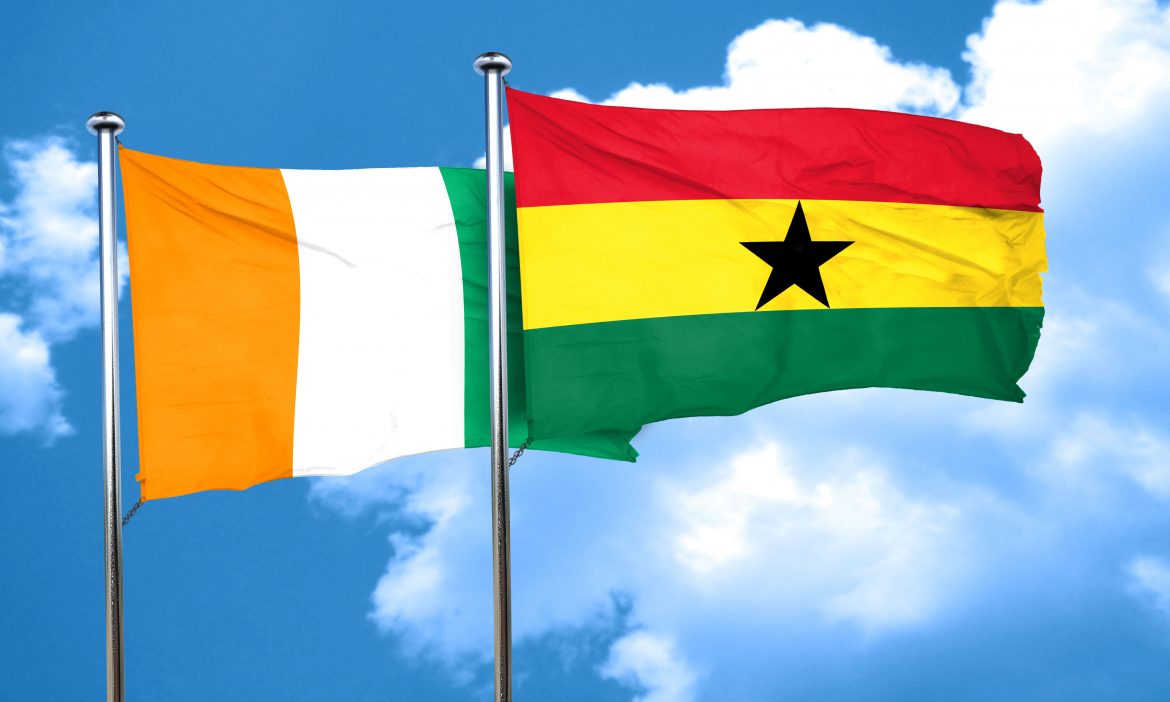
On 23 September 2017, a Special Chamber of the International Tribunal for the Law of the Sea (ITLOS) delivered its judgment in the Dispute concerning delimitation of the maritime boundary between Ghana and Côte d’Ivoire in the Atlantic Ocean (Ghana/Côte d’Ivoire). The Special Chamber, which was formed at the request of the Parties, was composed of Vice-President Bouguetaia, Judges Wolfrum and Paik and Judges ad hoc Mensah and Abraham. Judge Paik and Judge ad hoc Mensah issued separate opinions.
As previously reported, the hearing on merits was held at ITLOS between 6 and 16 February 2017. Ghana had proposed a south-westerly line which relied, inter alia, on an alleged tacit agreement between the parties, the so-called “customary equidistance boundary”. By contrast, Côte d’Ivoire had proposed a south-easterly angle-bisector line, the “168.7 degrees azimuth line”. Both Parties proposed, in the alternative, a provisional equidistance line adjusted to take account of relevant circumstances.
Côte d’Ivoire also argued, inter alia, that Ghana had violated (i) Côte d’Ivoire’s exclusive sovereign rights over its continental shelf; (ii) the obligation to negotiate in good faith, pursuant to Article 83, paragraph 1 of UNCLOS and customary law; and (iii) the obligation not to jeopardize or hamper the conclusion of an agreement as provided for by Article 83, paragraph 3 of UNCLOS. Côte d’Ivoire also claimed that Ghana had violated the provisional measures prescribed by the Chamber in its Order on provisional measures of 25 April 2015.
The Special Chamber unanimously found that it had jurisdiction (i) to delimit the maritime boundary between the Parties in the territorial sea, exclusive economic zone and continental shelf (both within and beyond 200 nautical miles); and (ii) to decide Côte d’Ivoire’s claim relating to the alleged international responsibility of Ghana.
The Special Chamber unanimously found that there was no tacit agreement between the Parties to delimit their territorial sea, exclusive economic zone and continental shelves. It confirmed that the threshold for establishing a tacit legal agreement is high, and stated unequivocally that “oil practice, no matter how consistent it may be, cannot in itself establish the existence of a tacit agreement on a maritime boundary”. The Special Chamber also rejected Ghana’s claim that Côte d’Ivoire was estopped from objecting to the “customary equidistance boundary”.
The Special Chamber rejected Côte d’Ivoire’s claim for a maritime boundary based on the bisector method. It held that there was no particular circumstance which would justify it deviating from the equidistance/relevant circumstances method in this case. The Special Chamber considered that it would be “in contradiction of the principle of transparency and predictability […] to deviate, in this case, from a delimitation methodology which has been practised overwhelmingly by international courts and tribunals in recent decades”. Applying the standard three-stage methodology, it first drew a provisional equidistance line and then determined that there was no relevant circumstance which would justify an adjustment of this provisional equidistance line. It also found that the proportionality test required no adjustment to the provisional equidistance line.
With respect to Ghana’s alleged international responsibility, the Special Chamber unanimously found that Ghana did not violate (i) Côte d’Ivoire’s sovereign rights; (ii) Article 83, paragraphs 1 and 3 of UNCLOS; or (iii) the provisional measures prescribed by the Special Chamber in its Order of 25 April 2015.
For the Judgment of the Special Chamber, click here; for the Separate opinion of Judge Paik click here; for the Separate opinion of Judge ad hoc Mensah, click here.
